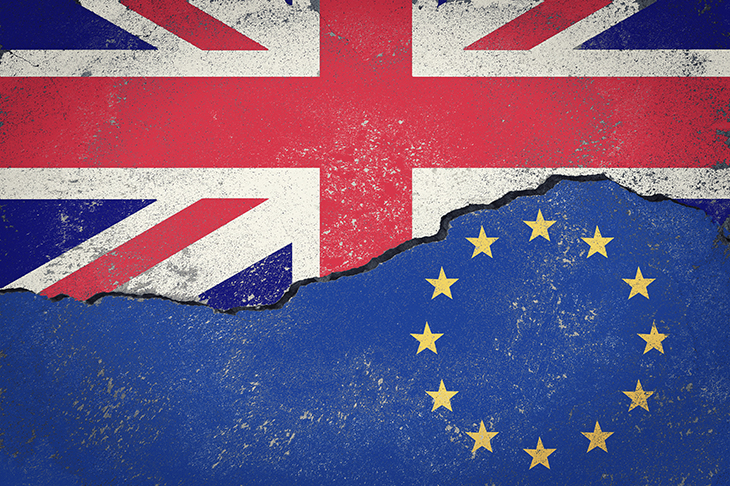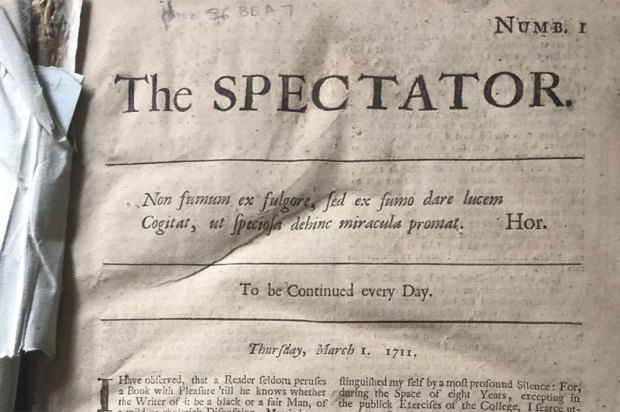The European Union’s official goal — an ever-closer union of people — remains its single most attractive feature. Our continent is marked by its diversity: nowhere can you find a greater range of languages, histories and cultures. Insofar as the EU promoted this co-operation, it served a good purpose. But when it sought to go further, seeking to rule rather than serve its member states, it became a source of instability in Europe. We will see the results in the European Parliament elections next month, when populists are expected to make the largest gains.
Populism is, always and everywhere, a sign that established political parties have failed to respond to new concerns. In Britain, we tend to internalise our chaos and have it played out in parliament rather than in the streets. But the failure of parliament to take Britain out of the European Union, as MPs had collectively promised to do when they passed Article 50, will be an invitation for protest parties – especially if there is to be a long extension of EU membership. We are entering a new, unpredictable stage.
The Tories had good reason to try doing everything they could to avoid fighting the European Parliament elections. Polls suggest Nigel Farage’s old party, Ukip, and his new one, the Brexit Party, would together outscore the Tories. The election may also provide an opportunity for new parties such as Chuka Umunna’s Change UK. At present, these parties have very little in the way of organisation, money or candidates. Soon, they might have MEPs, money and a base from which to threaten the other main parties. A few months ago, Britain could say that it had no vacancy for populists because the established parties had got the message and were responding to the demand for change. It’s harder to make this case now.
The Vote Leave campaign was explicitly globally-minded, saying that Brexit was a chance to improve relations with our European neighbours: we’d be the EU’s biggest ally, not its biggest headache. This claim always infuriated those who believed (and still do) that Brexit was motived by narrow-minded nationalism and soft xenophobia. Since the referendum result, this has been the big test: was it possible to retain, even improve relations with our neighbours after the divorce? It has been a huge diplomatic challenge, and has just been made a lot harder by the extension of EU membership.
Britain will now remain in the purgatory of Brexit talks. The decision to let the European Commission handle these talks had obvious diplomatic risks. Securing a good Brexit deal was never going to be top of its agenda. Its main objective was to send a message to the EU’s critics all over the continent: anyone seeking to leave the club could expect agony, mockery and isolation. And that’s if they manage to leave at all: given that mighty Britain has not been able to quit, others should not try.
While this strategy has been effective (you’d be hard-pushed to find any populist party now advocating leaving the EU), it does threaten relations. Privately, many European leaders have been taken aback by the language and behaviour of those holding talks in Brussels. Donald Tusk, the president, has talked about which ‘circle of hell’ British politicians should be consigned to and used social media to mock Theresa May. Jean-Claude Juncker and Michel Barnier have joined in.
It is crucial, though, that British ministers do not rise to the bait. Jeremy Hunt, the Foreign Secretary, disgraced himself when he absurdly compared the EU to the Soviet Union. His misstep underlined the danger: if the UK is dragged into a slanging match, it damages relations in ways that can be difficult to repair.
At one stage Leo Varadkar was talking about stopping British aircraft flying over Irish airspace. To the many Brits who treasure the warm relations with the Irish, this is baffling: why would the Taoiseach use such language? Why sign up to the Francophonie, the French commonwealth, while refusing on principle to join Malta, Cyprus and the UK in the other Commonwealth? The answer is politics. Varadkar has nationalists breathing down his neck, and the Brexit talks are a stage. He is acting his part.
One of the hardest parts of the Brexit project was always going to be reassuring the world that this is not about hoisting up the drawbridge – but going out into the world. Theresa May has failed to strike a conciliatory tone, and instead resorted to abrasive language. She is hardly the only European leader to seek votes by talking in this way, but it didn’t work for her, at home or abroad. More importantly, nationalism and protectionism are on the rise from Dublin to Dubrovnik and the failure to deliver Brexit on time may well encourage the same in Britain. The Conservative party must stand against such forces, and make it clear to the country and the world that Britain’s future still lies in free trade and global alliances.
The failure of Theresa May’s Brexit talks is a blow in many ways: political, economic, but also diplomatic. Extending these negotiations means it will be more challenging than ever to keep good relations with our European allies. It is crucial that the next Conservative leader can rise to that challenge.
Got something to add? Join the discussion and comment below.
Get 10 issues for just $10
Subscribe to The Spectator Australia today for the next 10 magazine issues, plus full online access, for just $10.
You might disagree with half of it, but you’ll enjoy reading all of it. Try your first month for free, then just $2 a week for the remainder of your first year.














Comments
Don't miss out
Join the conversation with other Spectator Australia readers. Subscribe to leave a comment.
SUBSCRIBEAlready a subscriber? Log in